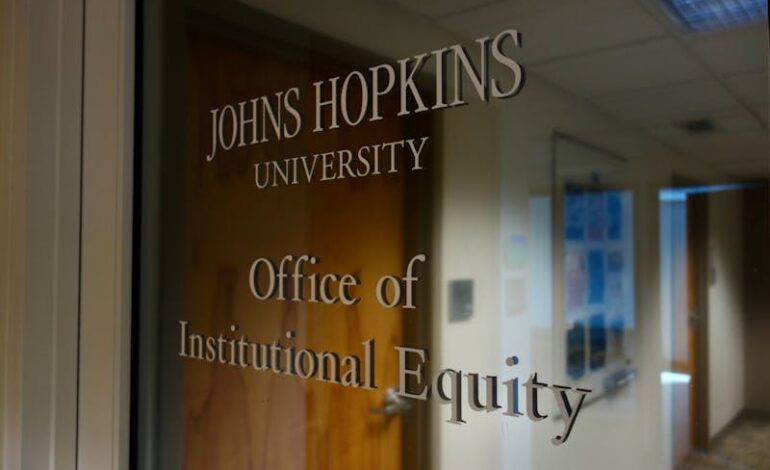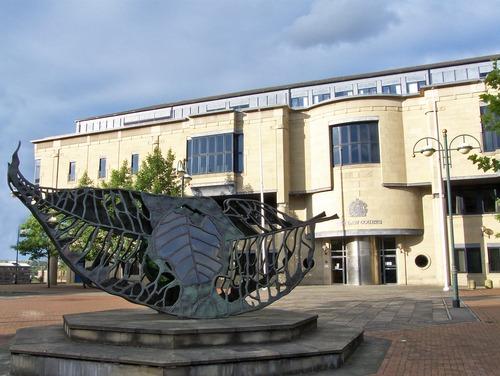Students Challenge University’s Handling of Sexual Misconduct Claims

Students and former complainants have raised serious concerns about the investigation process of the Office of Institutional Equity (OIE) at Johns Hopkins University. This scrutiny follows allegations of inadequate support and unclear procedures in handling sexual misconduct reports, particularly under the revised Title IX regulations.
The OIE is responsible for assessing and investigating all reports of sexual and sex-based misconduct at the University. Initially, it operated under the 2024 Title IX changes of the Education Amendments of 1972. However, after the Trump administration vacated this version, the University reverted to the 2020 Title IX regulations, which include stricter procedural requirements. According to the current guidelines, OIE evaluates each report to determine its jurisdiction and applicable policies. If allegations do not meet the updated Title IX harassment standards, the University is required to dismiss the complaint.
If a case proceeds to investigation, OIE officials gather facts by interviewing the complainant, the respondent, and witnesses. The burden of proof rests with the University, allowing both parties to submit evidence and suggest questions for cross-examination. Throughout the process, OIE offers institutional support, including no-contact orders and connections to confidential resources.
Despite these procedures, former complainants have expressed dissatisfaction. One such individual, identified as Addison, a former student at the School of Advanced International Studies (SAIS), reported harassment by a professor under the alias “Harry.” In an interview, Addison described Harry’s inappropriate comments about female students and his behavior during online classes, which included his wife’s presence in the background.
Addison’s experience with OIE concluded with their finding of no policy violation. However, she requested a unilateral no-contact directive due to the power imbalance between herself and Harry, which OIE declined. Addison criticized the OIE’s decision-making, stating, “I feel betrayed and disappointed. […] It really does feel like there is no point in reporting if nothing happens as a result of it.”
Another former complainant, Celeste Marcus, had a different but equally troubling experience. Marcus accused Yascha Mounk, a professor of political science at SAIS, of rape. Although OIE contacted her to initiate an investigation, she felt coerced into reporting and noted that OIE could not act due to a lack of evidence. “What Hopkins told me was, because I didn’t have anybody witness the rape, it was my word against his,” Marcus recalled. She expressed concern that the standards applied by OIE created an unsafe environment for potential victims.
Kelly, another student who reported sexual assault, shared her frustrations with OIE’s lack of support. She described the investigative process as cold and impersonal, stating, “It felt like they were doing what they had to do to cover their own backs instead of actually caring about my feelings and recovery.” Kelly reported that the respondent faced minimal consequences, receiving only a delayed suspension and a brief online training module.
The Sexual Assault Resource Unit (SARU) has also expressed concerns regarding OIE’s current processes. SARU representatives highlighted that the changes in Title IX regulations have made it increasingly difficult for complainants to pursue their cases. They noted that the average duration for investigations has significantly exceeded the recommended timeframe of 60 to 90 days, with some cases lingering for over 200 days.
In a statement to The News-Letter, a University spokesperson claimed that OIE connects students to various mental health and supportive resources and that the office operates independently from the University. However, SARU representatives suggested that OIE staff primarily serve to protect the University’s reputation rather than prioritizing the well-being of complainants.
As students voice their concerns, questions remain about the effectiveness and transparency of OIE’s processes. The experiences of Addison, Marcus, and Kelly underscore the need for a reassessment of how sexual misconduct cases are handled at the University, ensuring that the focus remains on the safety and support of all students involved.






